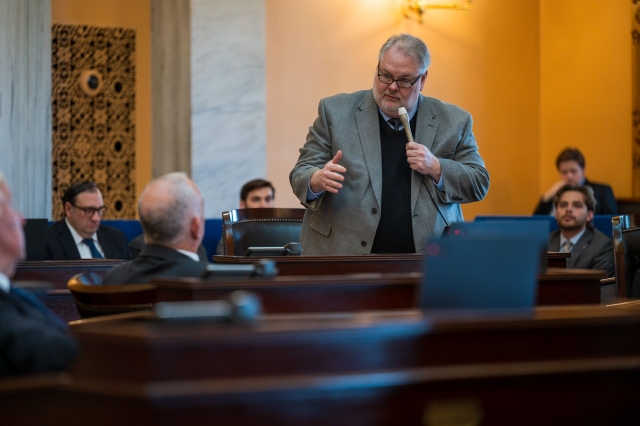Romanchuk Supports Historic Energy Policy

COLUMBUS—The Ohio Senate unanimously passed House Bill 15, based in large part upon previous legislation (Senate Bill 2) also supported by Senator Mark Romanchuk (R-Ontario) and designed to become a new 21st Century power policy that would produce reliable and affordable energy for the whole state.
"Updating Ohio's energy policy for the modern age establishes our state as a strong and reliable energy partner for years to come," said Senator Romanchuk. "Eliminating riders placed on consumers while increasing power generation allows us to attract leading industries to our state. In passing this legislation, Ohio is placed in the best possible position for affordable and reliable energy generation."
The House legislation places the focus on projects that generate baseload power, which is the demand needed to power homes, businesses, and industry across the state every day. Additionally, the bill promotes “behind the meter” generation where industries generate their own power and reduce stress on the electric grid.
House Bill 15 keeps intact three major provisions from Senate Bill 2 that are essential to promoting new energy generation:
- It incentivizes new baseload generation projects by reducing the tangible personal property tax (TPP) on new electricity generation projects and the infrastructure associated with those projects by ~67% starting in Tax Year 2027.
- The bill also provides additional accountability to consumers by repealing Electric Security Plans (ESPs), also known as “riders.” This has been a way to charge consumers more without necessarily making the case for why an energy company needed additional funds. The ESPs will be replaced by a fundamental change in the way rates are set. The utility company will be required to fully disclose its financials to the Public Utility Commission every three years before a rate increase would be approved. Utilities will be allowed to continue investing in grid reliability by forecasting expenses for the intervening period but would be required to true up to actual expenses.
- HB 15 also repeals all rate payer subsidies for power generation, among other worthwhile provisions.
The bill now heads to Governor DeWine for his signature.
###



